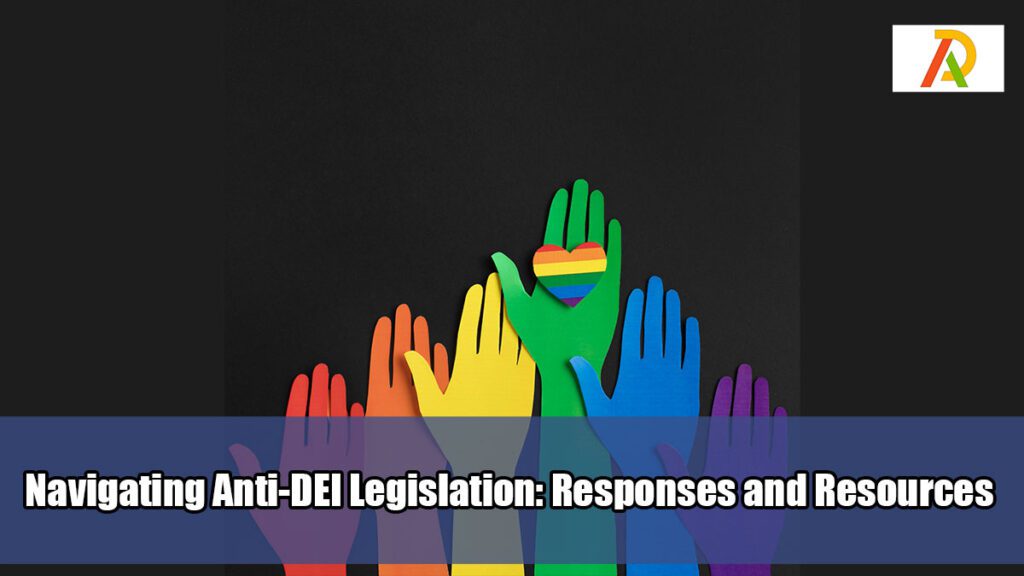Navigating Anti-DEI Legislation: Responses and Resources

Diversity, Equity, and Inclusion (DEI) initiatives have been a growing focus in many sectors, from education to corporate environments, as society recognizes the need for greater representation and inclusivity. However, recently, some legislative measures have sought to limit or even undermine these DEI efforts, posing significant challenges for organizations that foster inclusivity. This article examines the response to anti-DEI legislation and provides resources to those committed to continuing their DEI work within the legal framework.
Understanding Anti-DEI Legislation
Anti-DEI legislation refers to laws and regulations that seek to limit the scope of DEI efforts. This can include restricting certain topics in education or training sessions or even prohibiting specific DEI practices outright. Understanding the specifics of these legislative measures, including their wording and intent, is crucial in formulating a meaningful and legal response.
Challenges Posed by Anti-DEI Legislation
Anti-DEI legislation challenges institutions that foster a diverse, equitable, and inclusive environment. These challenges include:
1. Limited Scope of Discussion: Anti-DEI legislation often seeks to limit the scope of discussion about systemic racism, sexism, and other forms of discrimination. This restricts the ability to have open, honest conversations about these important issues.
2. Impact on Training Programs: These laws can impede organizations’ ability to provide comprehensive DEI training to their employees, students, or members, limiting their understanding and awareness of these crucial issues.
3. Inhibiting Progress: These laws can slow down or even reverse progress toward a more inclusive society by curtailing DEI efforts.
Responding to Anti-DEI Legislation
While anti-DEI legislation poses significant challenges, there are several ways to respond. It’s crucial to ensure these responses are within the legal framework while still promoting DEI values:
1. Legal Challenges: In some instances, organizations and institutions have launched legal challenges against anti-DEI legislation, arguing that they infringe upon rights to freedom of speech and academic freedom.
2. Advocacy and Activism: Advocacy groups are actively working to oppose these laws and bring public awareness to their potential consequences. Supporting or joining these efforts can be a powerful way to respond.
3. Adapting DEI Efforts: DEI initiatives can be reframed and adapted to comply with these laws while promoting diversity, equity, and inclusion.
Resources for Navigating Anti-DEI Legislation
Several resources can help organizations navigate the challenging landscape of anti-DEI legislation:
1. Legal Advice: Consulting with legal professionals can guide how to comply with these laws while maintaining DEI efforts.
2. DEI Consultants: DEI professionals can provide advice and strategies for adapting DEI programs to align with legislative restrictions.
3. Online Platforms: Several online platforms provide up-to-date information on anti-DEI laws and offer response resources. Examples include the ACLU (American Civil Liberties Union) and NAACP (National Association for the Advancement of Colored People).
Conclusion: Standing Firm on DEI Values amidst Anti-DEI Legislation
While anti-DEI legislation presents significant challenges, our commitment to fostering diversity, equity, and inclusion must remain unwavering. By understanding the specifics of these laws, strategically responding within the legal framework, and utilizing available resources, organizations can continue to make progress toward their DEI goals. As society grapples with these issues, it’s important to remember that an inclusive society requires resilience, creativity, and an unwavering commitment to equality and justice.


